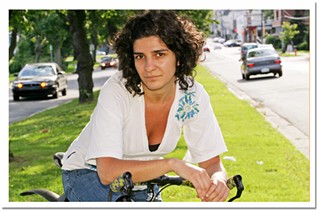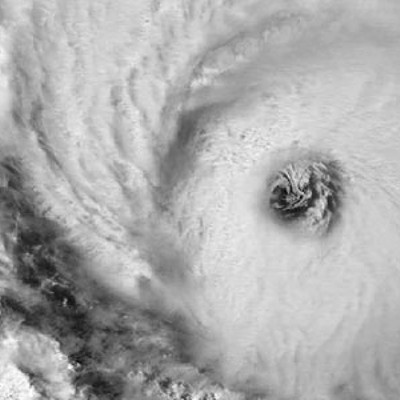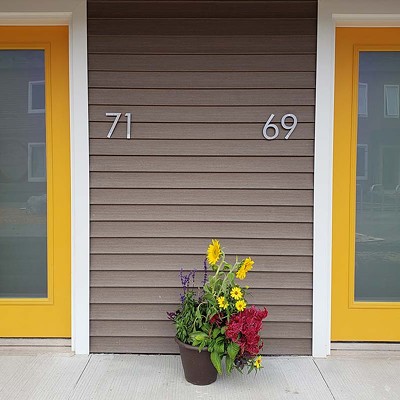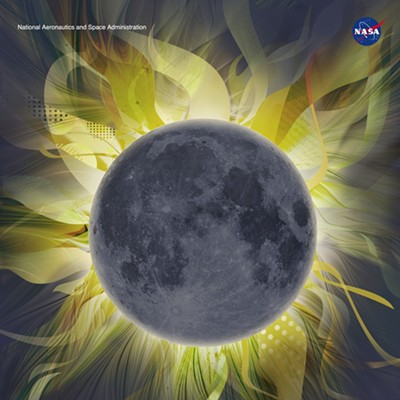One of Aftab Erfan's workplace colleagues is a man with five children. Four of them have moved to Alberta for the "oil rush," attracted by the lure of steady, well-paying work and a new life. But is it a better life, when you leave your home, family and friends behind?
"From the perspective of the father, your whole family is gone," says Erfan. "That's a big for anyone."
Erfan is taking part in a bicycle trip across Alberta called To The Tar Sands, starting on August 15 and going through the first week of September, to try and better understand both the human and ecological reality of the tar sands project. An initiative of the Sierra Youth Coalition, the young people's arm of eco-watchdogs The Sierra Club of Canada, 20 riders from around the country will start near the US border at Waterton Lakes National Park and head north, visiting older towns that have passed through the boom of oil, all the way up to Fort McMurray, concluding the trip in Fort McKay. They'll meet stakeholders from the First Nations communities, health care providers and oil industry workers while touring the Athabasca oil region, and will blog from the road. They'll deliver first-hand accounts of what is happening out there, how the project is changing the lives of both the indigenous populace and the people who've gone there to work. And along the way, they'll get a better sense of what the world's largest mega-industrial project will mean to our country and the environment.
For Erfan, it's an exploratory, truth-telling mission, while trying to keep an open mind about what she experiences.
"I'd like to see the scale of the development," she says. "There've been so many stories about the conditions of life in Alberta. I've heard the places where the workers are staying described as concentration camps. They're really struggling with health care and the school system, just because they have such a big increase in population. The big question for me is, is that really worth it? Do people decide on that lifestyle and give up what we have in Halifax, and what is that doing to communities if they are making these decisions?"
Though her family is Iranian, 26-year-old Erfan grew up in Vancouver and received a masters degree in urban planning from McGill in Montreal. She's been living in Halifax for the past three years. "Halifax is home for me as much as anywhere, now," she says. She works at Jacques Whitford, an engineering and environmental consulting firm.
"We do some energy planning, sustainability planning, more generally," she says. "I also work on an internal sustainability initiative for the company. It's trying to "walk the talk' I guess, and thinking about greening our own operations, engaging our employees, being better citizens, basically."
Its clear Erfan's sense of civil responsibility to the planet, as reflected in her career choice, is also a big reason why she's going to Alberta. One of the places she's looking forward to visiting is Okotoks, a town outside of Calgary, for its solar-powered subdivision, as well as the reported windiest place in Canada, Pincher Creek, home to a large wind farm. "We want to see renewable energy in action, but from a cyclist's perspective it's going to be very hard to bike, I think," she says, laughing. She gets serious when discussing larger ecological concerns related to the oil industry. "We are majorly failing on our Kyoto commitments. We are supposed to be decreasing our emissions by six percent below 1990 levels and instead we are increasing, and more than half of that increase is because of the tar sands. The environmental footprint is just huge."
Erfan is a regular cyclist, though she hasn't taken a trip on this scale. "I cycle to work every day, and I work in Burnside and live in Halifax so it's about a 30 to 40 minute ride both ways," she says. "Some days on this trip are going to be fairly easy, and some are going to be 100 kilometres, so I'm going to be struggling a little, I think." She says the cyclists on the trip are at different levels of experience, from cross-Canada bikers to those only occasionally on two wheels. "We have to have a fast group and a medium group and a slow group and hope we end up at the same place every night."
For more information on the trip, check out: www.tothetarsands.ca.













